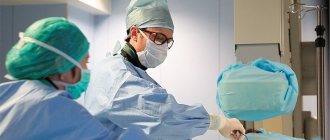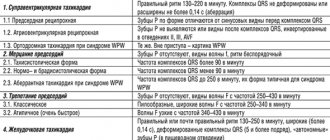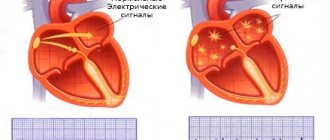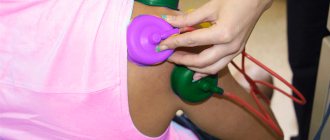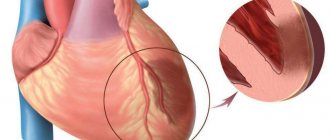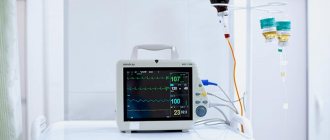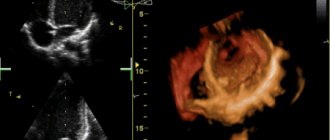Causes of disorders of the cardiovascular system
All over the world, the main cause of death is pathology of the heart and blood vessels. However, most of these pathologies can be prevented by eliminating the following risk factors:
- smoking;
- poor nutrition and obesity;
- insufficient physical activity.
In addition, the risk of pathological changes in the cardiovascular system increases:
- elderly age;
- diabetes;
- increase in the amount of cholesterol in the blood.
People who suffer from cardiovascular diseases or are at increased risk of developing such pathologies need timely identification, medical consultation and (if necessary) hospitalization.
Center for Syncope and Cardiac Arrhythmias
The Center's opening hours are from 8:30 to 16:48, Monday to Friday.
OBJECTIVES OF THE CENTER - diagnosis, treatment and rehabilitation of children and adolescents suffering from syncope and heart rhythm disturbances, diseases with a high risk of their occurrence, as well as conducting scientific research, methodological and educational activities in this area.
INDICATIONS FOR REFERRAL FOR CONSULTATION AND EXAMINATION AT CSSS:
– Syncope (fainting) states of unknown nature; – Heart rhythm and conduction disturbances (including in children involved in sports, in preparation for the medical commission of the military registration and enlistment office); – Complaints about heartbeat; – Prolongation or shortening of the QT interval; – ECG manifestations of Brugada syndrome; – Children from families with cases of sudden death in family members under 45 years of age, cases of sudden infant death syndrome; – Respiratory-affective attacks with loss of consciousness; – Treatment-resistant epilepsy or its atypical course; – Examination of people involved in sports with heart rhythm disturbances and fainting and determination of criteria for admission to sports activities.
THE CENTER CONDUCTS THE FOLLOWING TYPES OF INVESTIGATIONS USING THE MOST MODERN METHODS AND SYSTEMS:
– 12 channel ECG; – Bicycle ergometry and treadmill test (test on a treadmill); – Holter monitoring, including multi-day monitoring, including, in addition to the standard assessment of ECG and arrhythmias, the most modern methods of analyzing the daily dynamics of the QT interval, heart rate turbulence (assessment of the “malignancy” of arrhythmias), heart rate variability, electrical instability of the myocardium (microwave alternation of the T wave ), assessment of the performance of the artificial pacemaker and other parameters; – A set of specific clino-orthostatic diagnostic tests to identify the causes of fainting (syncope) in children; passive orthostatic test (tilt test); – Transesophageal electrophysiological study; – According to indications, blood pressure monitoring, electroencephalogram, MRI and others, including a comprehensive pediatric examination, can be carried out in other departments of the Federal State Budgetary Institution of Health Sciences and Clinical Practice of the Federal Medical and Biological Agency of Russia; – A specialized program for assessing the functional state of people involved in sports, using modern examination methods, including ergospirometry, to determine the possibility of continuing exercise and/or the need for timely correction of sports loads.
The scope of the examination is determined after consultation with the Center’s doctors. Certain types of studies can be performed upon referral from other medical institutions (Holter monitoring, electrophysiological study).
All techniques are performed by highly qualified specialists who not only master them perfectly, but are also, according to many of them, leading specialists in the country who participated in the development of these techniques and the determination of their normative parameters and evaluation criteria for children of different genders and ages.
MOST OF THE NEW METHODS OF EXAMINATION OF PATIENTS WITH SYNCOPAL CONDITIONS AND CARDIAC ARRHYTHMIAS ARE UNIQUE AND CARRIED OUT IN THE COUNTRY ONLY IN OUR CENTER.
Treatment at the Center is carried out on the basis of the latest domestic and international recommendations and long-term personal experience at the Center.
According to the conclusion of CSSA specialists, outpatient and, if necessary, inpatient therapeutic treatment of children with cardiac arrhythmias and conduction disorders is carried out, and objective indications for surgical treatment are determined.
Specialists from other medical institutions in the country are constantly trained at the Center.
Signs of vascular and heart diseases
The first signs of cardiac diseases are usually nonspecific. They can easily be confused with manifestations of other diseases, so it is important to correctly determine the causes of the changes that have occurred.
Make an appointment with a cardiologist and get examined at the clinic if you are regularly worried about:
- pain and discomfort in the chest;
- weakness, decreased exercise tolerance;
- shortness of breath, attacks of suffocation;
- interruptions in heart function, heart rhythm disturbances, episodes of palpitations;
- swelling of the legs, increase in abdominal volume;
- headaches and dizziness;
- fainting states.
Cardiac diseases are dangerous with the risk of developing cardiovascular complications and sudden death. It is necessary to promptly seek medical help at the first symptoms of the disease, since the prognosis of treatment depends on this.
Scientific Research Clinical Institute of Pediatrics named after Academician Yu.E. Veltishcheva is the leading federal pediatric center in Russia, which has accumulated medical and scientific-methodological potential, the task of which is to protect the health of children and adolescents. On the basis of the institute 20 years ago, a unique federal Children's Scientific and Practical Center for Heart Rhythm Disorders of the Ministry of Health of the Russian Federation (hereinafter referred to as the Center) was created not only in Russia but also in Europe (hereinafter referred to as the Center), the result of which was an effective and completely self-sufficient system of providing medical care to children with cardiac arrhythmias in our country. In 1996, on the initiative of leading scientists of the Research Institute of Pediatrics and Pediatric Surgery of the Ministry of Health of the Russian Federation, for the first time in Russia, the “Federal Children's Scientific and Practical Center for the Diagnosis and Treatment of Heart Rhythm Disorders” was created (Order of the Ministry of Health of the Russian Federation No. 364 dated October 24, 1996), subsequently renamed the Children's Scientific Center - a practical center for the diagnosis and treatment of heart rhythm disorders. The basis for the creation of the first and only federal children's arrhythmology Center in Russia was an understanding of the significance of the problem of cardiac arrhythmias for children's healthcare and the important role of arrhythmias in the formation of severe disabling heart diseases in children, as well as the global significance of the problem of sudden arrhythmic death for young people. This was the beginning of a system of providing medical care to children with cardiac arrhythmias throughout the Russian Federation. Diagnostics, medication, and since 2003, interventional treatment of all types of heart rhythm disturbances, a wide network of specialists, continuous education of doctors in the methods of diagnosis and treatment of the most common forms of rhythm disturbances - all this made it possible to completely take control of the problem and achieve good results. To date, the Center has the world's largest positive experience in treating all types of cardiac arrhythmias in children, including experience in interventional treatment of children. Thus, in terms of the number of heart surgeries performed annually on children with arrhythmias, the Center ranks among the first in the world! A closed cycle has been created to provide specialized and high-tech medical care to children with cardiac arrhythmias of any age - from early detection to selection of the optimal treatment method, monitoring remission and complete recovery of patients. Since 2003, the Center has operated a department for the surgical treatment of complex cardiac arrhythmias and cardiac pacing. With the opening of this department, a closed cycle of providing specialized and high-tech medical care to children with cardiac arrhythmias, children of any age, has been created. The department's specialists provide the full range of surgical care for children with cardiac arrhythmias: invasive electrophysiological examination (EPS), implantation of REVEAL long-term ECG recording devices, radiofrequency catheter ablation (RFA) of additional conduction pathways, focal and reentry tachyarrhythmias, implantation of pacemakers (Pacemakers) in children with cardiac arrhythmias. bradyarrhythmias, implantation of cardioverter-defibrillators in children with life-threatening ventricular tachyarrhythmias, as well as combined interventional interventions in children with arrhythmias and congenital heart defects (ASD, PDA, VSD), non-invasive electrophysiological study, postoperative monitoring of implanted systems (ECS, ICD). In 2006, the Center opened a department of clinical and interventional arrhythmology, whose tasks include preoperative examination and postoperative monitoring of children with cardiac arrhythmia and conduction disorders, as well as examination and selection of drug therapy for children with severe chronic forms of arrhythmias. 2014 was marked by the official creation of a scientific department of arrhythmology within the Center, the purpose of which is to study the pathogenetic mechanisms of the occurrence and progression of life-threatening arrhythmias and to develop effective methods for their diagnosis, treatment and prevention. Today, the Center is the leading children's scientific and practical institution, specializing in the problems of diagnosis, treatment and prevention of heart rhythm disorders in children, determining priority directions for the development of pediatric arrhythmology and carrying out scientific research in this area. Over the years of work at the Center, more than 34 thousand children were consulted, more than 10 thousand patients were treated in the center’s hospitals, more than 3 thousand of them were operated on. At the Center, more than 700 pediatricians and pediatric cardiologists were trained in the course “Pediatric Cardiology with the Basics of Childhood Arrhythmology.” The center actively participates in the implementation of international, including scientific projects in cooperation with the Max-Planck Institute for Demographic Research (Germany), the international children's alliance "Heart to Heart" (USA), the Mainz University Clinic, Stanford University (USA), the University of San Francisco (USA), Faculty of Medicine of the University of Pavia (Italy), Berlin Heart Center and others. The result of the clinic’s scientific work was the publication of 11 monographs, more than 20 methodological recommendations, and 17 candidate’s dissertations were defended. The center was at the origins of the creation of the Association of Pediatric Cardiologists of Russia, which became the largest and most active professional community in the country. Currently, the Children's Scientific and Practical Center for Heart Rhythm Disorders is a scientific, methodological and organizational center not only for children's arrhythmology services, but also for all pediatric cardiology in Russia. When the demand for the Arrhythmology Center became obvious, children from all territories of the Russian Federation suffering from arrhythmia were able to receive free medical care at the most modern level. In patients with chronic arrhythmias, including those at risk for sudden cardiac death, there is the possibility of continuous observation (monitoring) with control of therapy and risk factors. Today, the Center is the leading children's scientific and practical healthcare institution, specializing in the problems of diagnosis, treatment and prevention of heart rhythm disorders in children, determining priority directions for the development of pediatric arrhythmology and carrying out scientific research in this area. The Center provides a full examination, medication and interventional treatment and monitoring of sick children aged 0 to 18 years suffering from heart rhythm and conduction disorders. Much attention is also paid to organizational and methodological work with Russian regions to improve medical care for children with this pathology. For a wide range of specialists, over the course of 20 years, the Center’s staff have published 12 monographs, 20 methodological recommendations, and defended 17 candidate’s and 3 doctoral dissertations. Works involving the Center's staff are widely cited by scientists in our country and foreign colleagues, receive prestigious awards in Russia and abroad, and are presented annually at the most prestigious scientific forums in the world. For many years, the Center has been actively collaborating with partners such as the Max-Planck Institute for Demographic Research (Germany), the University of Pavia (Italy), the University Hospital Mainz (Germany), Stanford University (USA), and the University of San Francisco (USA). , Republican Scientific and Practical Center "Cardiology" (Belarus). The center also actively interacts with Russian and international public organizations: “AIF. Kind Heart”, “Life Line”, “Under the Flag of Good” and “From Heart to Heart”. Currently, the Center's staff have accumulated unique experience in diagnosis, treatment and long-term prospective observation of children with severe, genetically determined cardiac arrhythmias and members of their families; predictors of life-threatening conditions and sudden cardiac death are identified and monitored, including after patients reach the age of 18 years . Thus, thanks to the creation of the Center, the enthusiasm of its employees, clear organizational work with specialists from all regions of Russia, an accessible and high-quality system of specialized medical care for children with cardiac arrhythmias has been created, including all possible types of high-tech medical care. The activities of the Center are a good example of solving the problem of patients with severe types of pathology in our country, while the entire modern arsenal of means of providing assistance to children with arrhythmias without restrictions is provided to each patient free of charge!
Head of the Center, Professor, Doctor of Medical Sciences Shkolnikova Maria Alexandrovna.
Employees class=”aligncenter” width=”644″ height=”482″[/img] Department of surgical treatment of complex cardiac arrhythmias and cardiac pacing. Pacemaker implantation.
Department of surgical treatment of complex cardiac arrhythmias and cardiac pacing. Radiofrequency ablation surgery.
Department of functional diagnostics of heart rhythm disorders. Ultrasound examination of the heart with Dopplerography.
Department of functional diagnostics of heart rhythm disorders. Treadmill test.
What kind of help do we provide?
The Geriatric Cardiology Department helps restore health to patients with diagnoses such as:
- hypertonic disease;
- cardiomyopathy;
- cardiac ischemia;
- pathology of the heart valve apparatus;
- heart rhythm and conduction disorders;
- chronic heart failure;
- syncope.
Currently, the department has a special program for the examination and treatment of patients with chronic heart failure, which makes it possible to provide care to this category of patients at a high level using modern methods and technologies and according to new data from Russian and international research.
On the basis of the Russian State Scientific Center there is a department of x-ray surgical methods of diagnosis and treatment, as well as a department of surgical treatment of complex cardiac arrhythmias and cardiac pacing.
The inpatient facility of the scientific and clinical center in Moscow has a capacity of 40 beds (comfortable 2-3-bed wards). The head of the department is Anna Yurievna Shchedrina (candidate of medical sciences, researcher, cardiologist, therapist, geriatrician).
The center is located in Moscow at the address: 1st Leonova Street, building 16. To clarify prices for services and make an appointment for treatment, call the phone numbers listed on the website or use the online form.
Arrhythmology Center
Rhythm disturbances are a pathological increase or decrease in heart rate, often a consequence of combined diseases (coronary heart disease, hypertension, endocrine disorders, disorders of the autonomic nervous system, etc.).
Many types of arrhythmia do not pose a threat, but some types of arrhythmia can be dangerous and threaten human life.
Symptoms of rhythm disturbance
— change in heart rate (the average heart rate at rest is from 40 to 120 beats/min)
- a feeling of interruptions in the work of the heart
- irregular heartbeat
- pre-fainting or fainting states
- weakness and dizziness
The most common arrhythmia, atrial fibrillation (atrial fibrillation), develops as a result of age-related changes in the heart and/or concomitant pathology of the cardiovascular system; occasionally it can be an independent disease, mainly in young patients.
Examinations are carried out using modern diagnostic equipment and performed by highly qualified experienced specialists. Based on their results, the patient receives an individual treatment and prevention program, which will undoubtedly help both prolong life and improve its quality.
If you are concerned about irregular heartbeat, do not ignore the unpleasant symptoms.
Our team has the most experience in the country in cryoballoon techniques for treating atrial fibrillation (atrial fibrillation), is in a leading position in the prevention of cardiogenic strokes by implanting a left atrial appendage occluder, as well as in high-density cardiac mapping, which makes the treatment of cardiac arrhythmias more personalized, increasing efficiency and reducing trauma to the body and heart in particular.
It may be dangerous!
The Center's arrhythmology team successfully treats patients with a wide range of diseases, including:
- Paroxysmal and persistent atrial fibrillation
- Sick sinus syndrome, AV block and other bradyarrhythmias
- Supraventricular tachycardia
- Ventricular extrasystole
- Ventricular tachycardia
- Management of patients with implanted pacemakers/defibrillators
- Chronic heart failure (CHF)
- Cardiomyopathies of various origins
- Genetic channelopathies
- Congenital disorders of cardiac rhythm and conduction
- Syncope
- Life-threatening cardiac rhythm and conduction disorders
Types of interventions
- Surgical treatment of cardiac conduction disorders using the installation of permanent pacemakers (artificial pacemakers)
- Minimally invasive treatment of chronic heart failure (CHF) using implantation of cardiac resynchronization therapy devices
- Treatment of refractory heart failure by installing a heart modulation system - “Optimizer”
- Implantation of a left atrial appendage occluding device for the prevention of cardiogenic strokes in atrial fibrillation
- Installation of cardioverter-defibrillators for the prevention of sudden cardiac death
- Implantation of long-term ECG monitoring systems (active ECG monitoring – from 1.5 to 3 years)
- Radiofrequency and cryoablation of arrhythmogenic areas of the heart - postoperative monitoring of patients, testing and reprogramming of implanted devices
Our advantages
- Many years of experience
- Modern minimally invasive surgical treatment methods, including unique ones
- Minimum percentage of complications compared to world statistics
- Maximum efficiency – along with the world’s leading clinics
- Continuous cooperation and joint operations with colleagues from Europe and Israel
- Use and co-authorship in national and international guidelines
Treatment and support programs for patients with arrhythmia
In our clinic, treatment of arrhythmia and patient support is carried out by experienced cardiologists and cardiac surgeons. We offer the following programs:
1.Expert assessment of the implantation of electronic devices for cardiac rhythm and conduction disorders, as well as myocardial resynchronization systems and long-term ECG monitoring.
You will receive specialist advice about the possibility of eliminating cardiac arrhythmia using interventional cardiology methods. The program also includes:
- Selecting a center for device implantation and a doctor specializing in this type of medical procedure;
- Selecting the device itself, purchasing it at an affordable price;
- Monitoring of the implanted device;
- Consultations after implantation, assistance at any time of the day;
- Insurance of both the device itself and the quality of the operation performed.
2.Interventional treatment of arrhythmias.
The program includes:
- Expert consultation and selection of center and specialist;
- Providing assistance in obtaining assistance through federal or city programs;
- Patient management by experts at the stage of preparation for surgery;
- Assessing compliance with standards of care;
- Advisory support and organization of emergency care (for residents of St. Petersburg) 24 hours a day, 7 days a week.
Diagnosis and treatment
In our clinic, treatment of cardiac arrhythmias is performed only after a detailed examination of the patient. We have all the capabilities for this. Diagnostic procedures available at our arrhythmia treatment center:
- ECG;
- Daily monitoring of ECG and blood pressure;
- Holter cardiac monitoring;
- Ultrasound methods for studying the heart and blood vessels;
- Lab tests.
After a thorough diagnosis, treatment is carried out. Sometimes it is enough for the patient to be prescribed antiarrhythmic drugs. Taking them allows you to normalize your heart rhythm. In other cases, surgery comes to the rescue. Thanks to modern interventional cardiac surgery, doctors are able to eliminate even severe arrhythmias.
Are arrhythmias dangerous?
Arrhythmias are dangerous. On the one hand, the very fact of their presence may indicate that the patient has a disease, because the heart rhythm is not disturbed just like that. Patients with arrhythmia are often diagnosed with coronary heart disease, heart failure and other dangerous pathologies.
On the other hand, arrhythmia can cause acute cardiovascular events, including death. For example, ischemic stroke can be a complication of atrial fibrillation. Its risk in patients with this form of heart rhythm disorder is about 5% per year. It is even higher if atrial fibrillation develops against the background of acquired valve defects.
Thus, any arrhythmias require diagnosis and treatment. A timely visit to the doctor helps save the patient’s life.
If you need an arrhythmia center, you can contact our clinic. Experienced specialists receive treatment here, some of them have scientific degrees.
In our arrhythmology center you can get a consultation with one of the country's leading cardiac surgeons, Sergei Mikhailovich Yashin. He is a doctor of medical sciences, a professor, and at the same time an operating surgeon, performing over 200 heart operations annually. For more than 20 years, S. M. Yashin has been heading the clinical and interventional arrhythmology service of the St. Petersburg Medical University named after Academician Pavlov.
